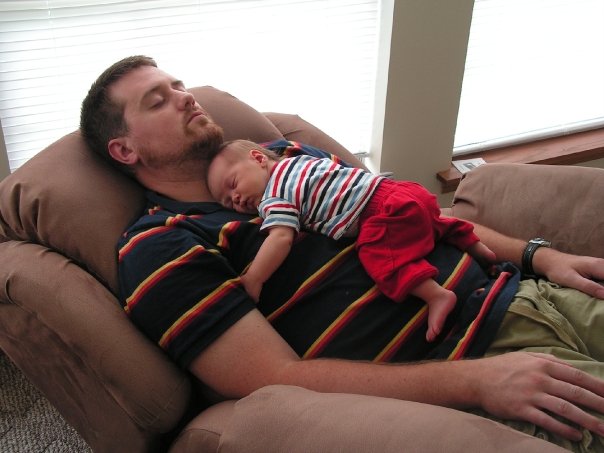I don’t have to listen to the voices of African-Americans — because of Al Sharpton.
I don’t have to acknowledge the voices of Christians — because of Pat Robertson and this hypocrite I once knew.
I don’t have to listen to the voices of the impoverished — because I once saw a person with no initiative taking advantage of the system.
I don’t have to acknowledge the voices proclaiming their anguish or pain — because there are those that flourish in worse conditions.
Our modern political and social discourse is little more than an exercise in justifying our refusal to listen. There are bloggers and political pundits whose entire approach is to frame their ideological opponents as so extreme that brazen indifference toward them is justified — even noble.
There are a myriad of ways a reluctance to listen is manifested:
1) One of the most prevalent is finding a voice within a defined community to hide behind. “Even Carefully Chosen African-American/Christian/Muslim thinks that . . . ” So we embrace that voice because it mirrors our own, then pat ourselves on the back, disregarding that we still haven’t opened ourselves up to the experiences of others, while living in a meticulously defined cocoon — carefully avoiding anything that would challenge our identity or induce dissonance.
2) Stephen Covey noted, ” We judge ourselves by our intentions and others by their behavior.” It’s a perfect formula for venerating ourselves to a position where our disregard seems warranted.
3) We confuse applications for principles. Imagine my wife loves fresh flowers every Friday — and because I love her and know it’s meaningful, I do my best to consistently bring her the freshest flowers I can find. If you don’t deliver flowers to your significant other on Fridays, does it mean you don’t love them? Of course not — but it’s the same underlying template used in political and social debates. Because you disagree with an approach, you must disagree with the underlying principle.
“Politician X hates America because his policy differs from mine. “
“Tim must not care about Y because he’s going to vote for X.”
We often care deeply about the same things, but because of our education, background, and experiences — we diverge on the appropriate path forward. Yet it seems our discussions never advance to a point where we witness the faint outline of common ground — and is rather mired in shouting past our opponents, ridiculing their perceived misconceptions, and never pausing long enough to actually hear them.
To be clear, xenophobia, sexism, and racism exist — and many people are indifferent to efforts to find common ground. There are those who have willfully corrupted the Bible for political or corporate gain. There are liberal appeals that are simply mechanisms to assuage the conscience and to avoid meaningful sacrifice. I’m convinced however that many of the discussions we have involve well intentioned people that want to see society progress.
I have a well worn groove in my brain that can respond to any argument that differs from my own — and while I hear just enough to respond, I often fail to listen adequately — justifying it because I avoid name calling and attempt to remain civil — or remain steadfastly focused on the veracity of the argument. But it’s not enough.
Like everyone else, I’m going to be tested this election cycle. There are issues I am intensely passionate about and can feel my impatience with the lack of progress boiling just beneath the surface. I am deeply committed to logical coherence, healthy skepticism of claims, and the scientific method. I detest propaganda and linguistic charlatans who can make up appear down or introduce confusion where none needs to exist. But does it matter? Is this self-ascribed virtue of “caring about the truth wherever it leads” another sophisticated mechanism to avoid listening?
What if we weren’t so concerned about being right and asked more questions? What if we gave others the grace we expect for ourselves? What if we just listened?
I’m off to read my daily e-mail of scientific facts and political research, then argue with some woefully uninformed soul on the Internet. And seriously, if anyone conflates Bernie Sanders with communism and the Soviet Union, it’s clear they’re uniformed — and want to see the United States become an oligarchical wasteland where the poor are trampled and puppies have no viable future.





